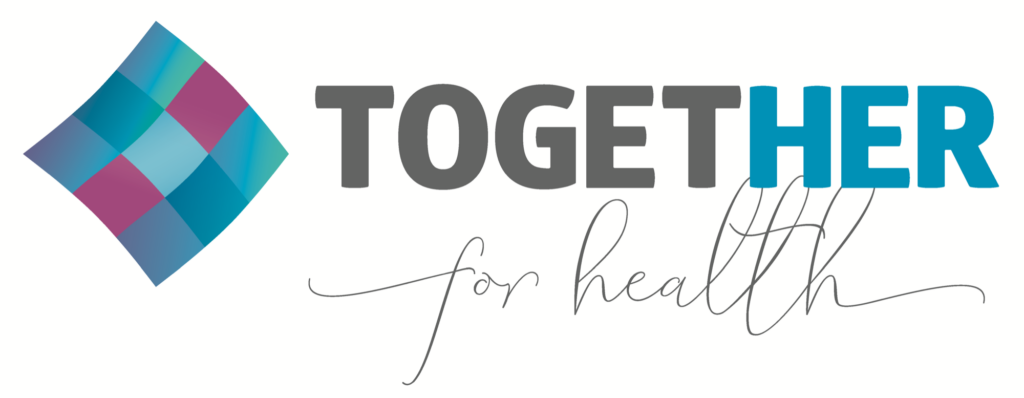Hannah: Scaling Up Screening for Cervical Cancer
We have the tools to prevent cervical cancer deaths.
29 August 2018 – In a dusty alley off a main road in suburban Thika, Kenya, medical practitioner Hannah Wambui runs a clinic that provides women’s health services.
With only two small examination rooms and a dispensary, Gawa Medical Center’s staff of six struggles to serve the large low-income community, primarily laborers for multinational coffee and pineapple plantations 50 kilometers from the capital, Nairobi.
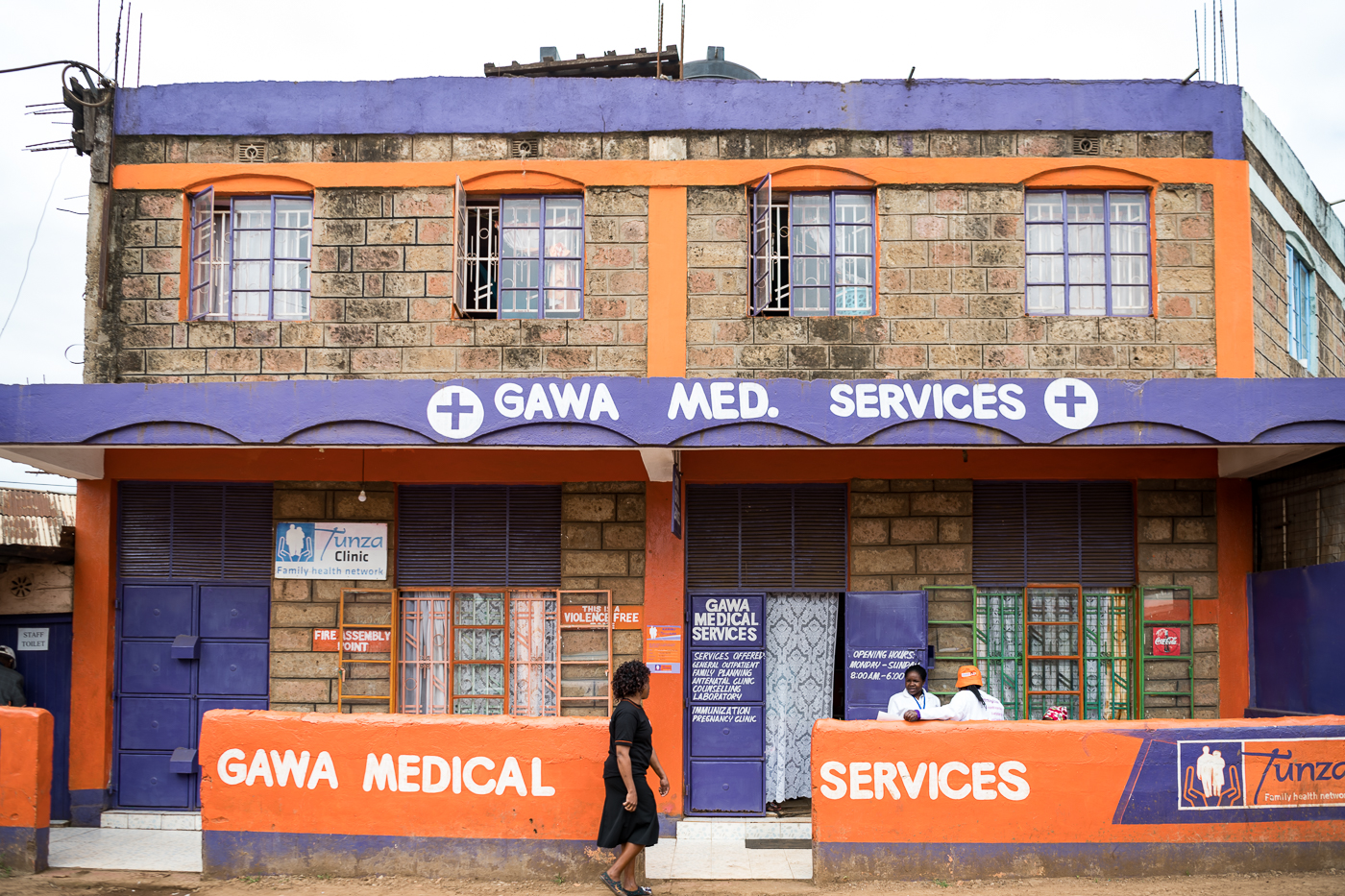
Hannah and her team are battling a tough epidemic: roughly five percent of Gawa’s clients show early signs of developing cervical cancer.
Cervical cancer is a preventable disease, and yet it kills more than 311,000 women worldwide every year. Nearly all cases of cervical cancer are caused by a very common sexually transmitted infection called human papillomavirus (HPV). Cervical cancer can be prevented with safe and effective vaccines against HPV, and also with simple, inexpensive screening and on-the-spot treatment for pre-cancerous lesions caused by the HPV virus – an approach known as “screen-and-treat.”
But the vaccines and screen-and-treat aren’t reaching all the women who need them. A disproportionate percentage of cervical cancer fatalities globally—close to 90 percent—are in low-income countries like Kenya, where a confluence of factors may prevent uptake of prevention services. These factors include: a lack of awareness of how the disease can be prevented; under-resourced health systems; and large numbers of people who struggle to afford medical care.
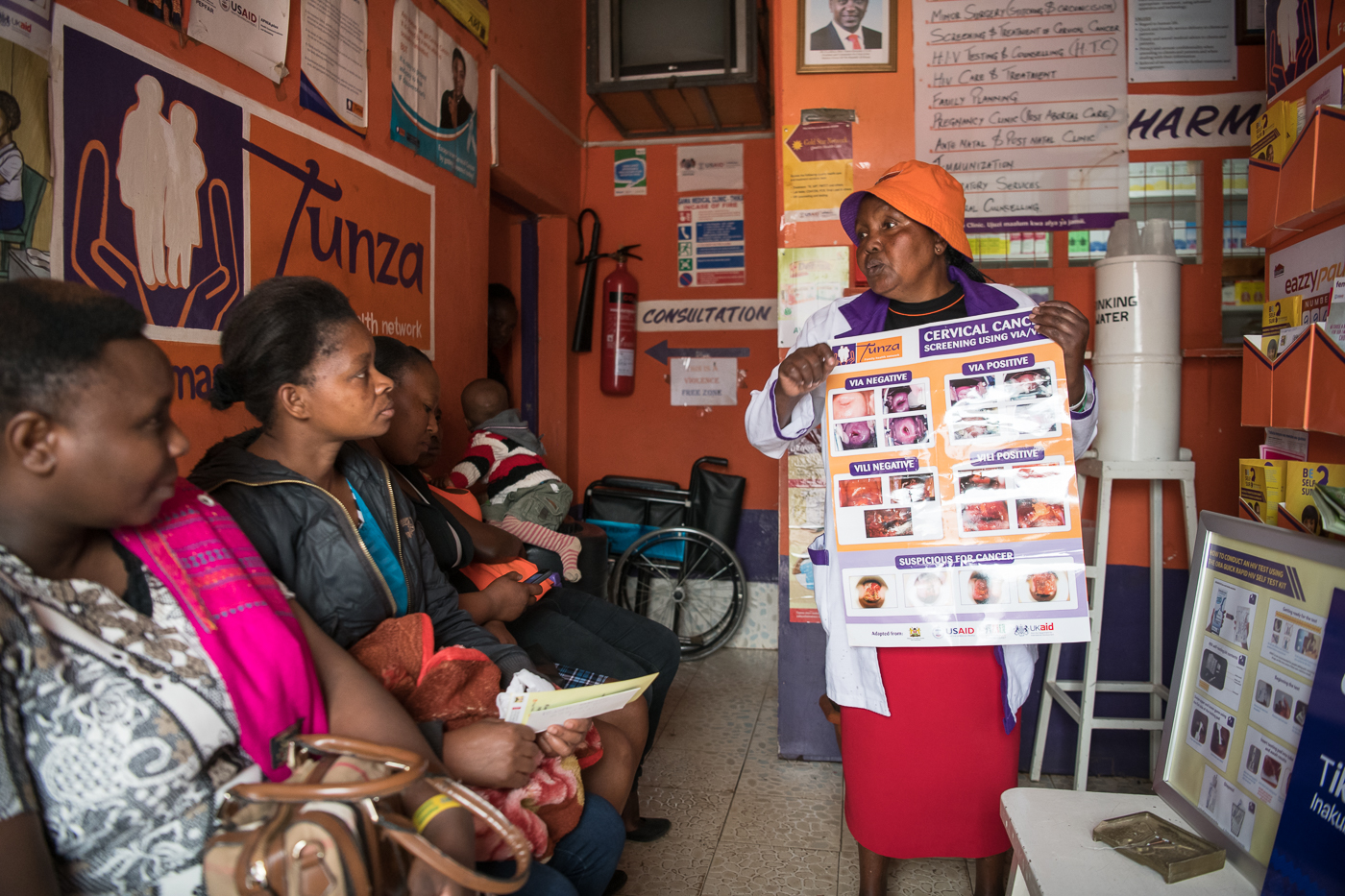
“When they come to the clinic and need services, they are unable to pay, but you can’t let them go,” Hannah said of many of Gawa’s patients, so the clinic hosts “Open Days” when services are provided for free. If it weren’t for the Open Days, when Gawa’s staff may see up to 100 patients in one day, many women would not receive medical care at all. Many of those who visit are learning about cervical cancer, HPV vaccination and the need for regular screenings for the first time.
When Elizabeth Wawera, 42, visited the clinic during an Open Day, it was her first time accessing cervical cancer prevention services. Financial choices for her, and many other women in her community, came down to either taking care of herself or looking after her family.
Fear and misinformation also keep women from accessing services. Waiting outside the clinic was a cervical cancer survivor, Louise Nyambura. “Most women I know have not been educated on the testing process and fear going through the screening process,” she said.
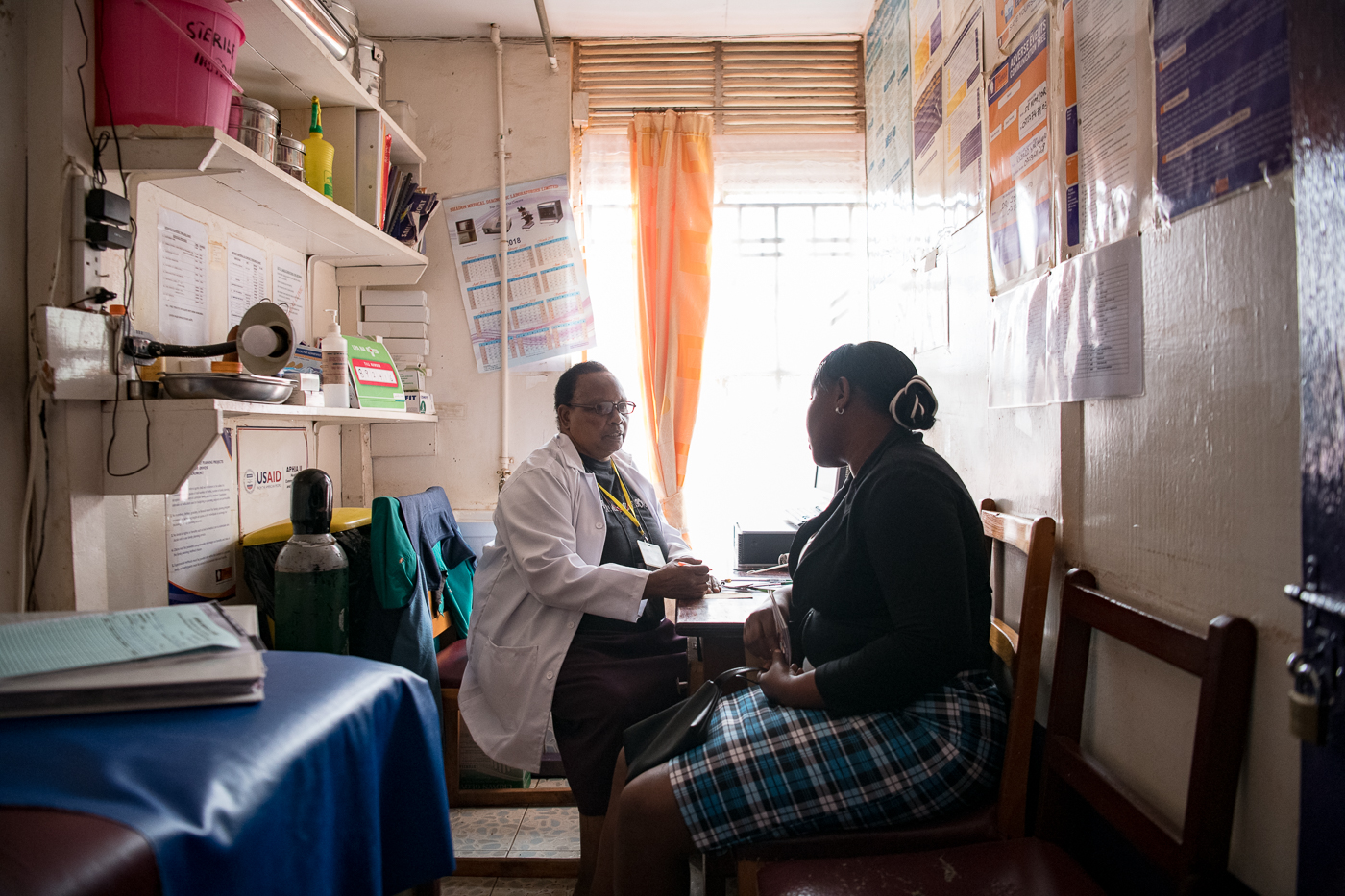
To overcome that obstacle, volunteers like Mary Mbugua visit the community’s market areas, talking to women about HPV and cervical cancer, and reassuring them that screening is a simple, painless process that can save their lives. Mary is a critical link between the women of her community and Gawa Medical Center. “I work to help the community because I live with them,” she said, “and I know their problems. When I tell them about what we can do, they appreciate it.”
This approach works because even in low-resource communities like Thika, “we have the tools today to identify women at risk for cervical cancer and to treat them immediately and affordably,” noted Celina Schocken, who is the Executive Director of TogetHER, a new partnership to address cervical cancer. “But there is so much more to be done,” Schocken added, referring to the need to scale up access to those tools worldwide.
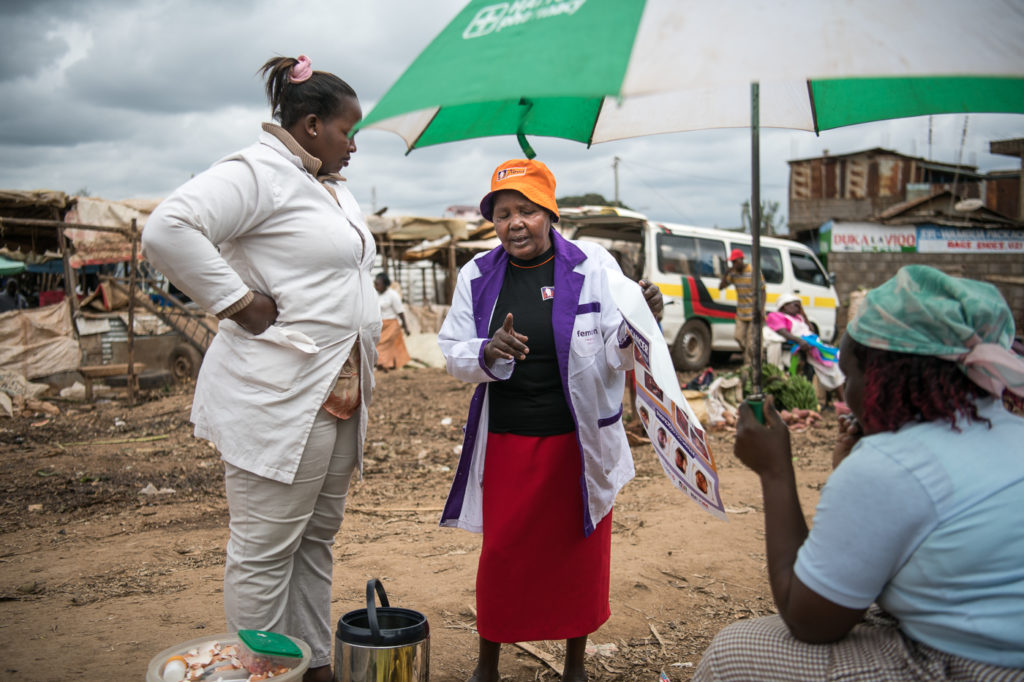
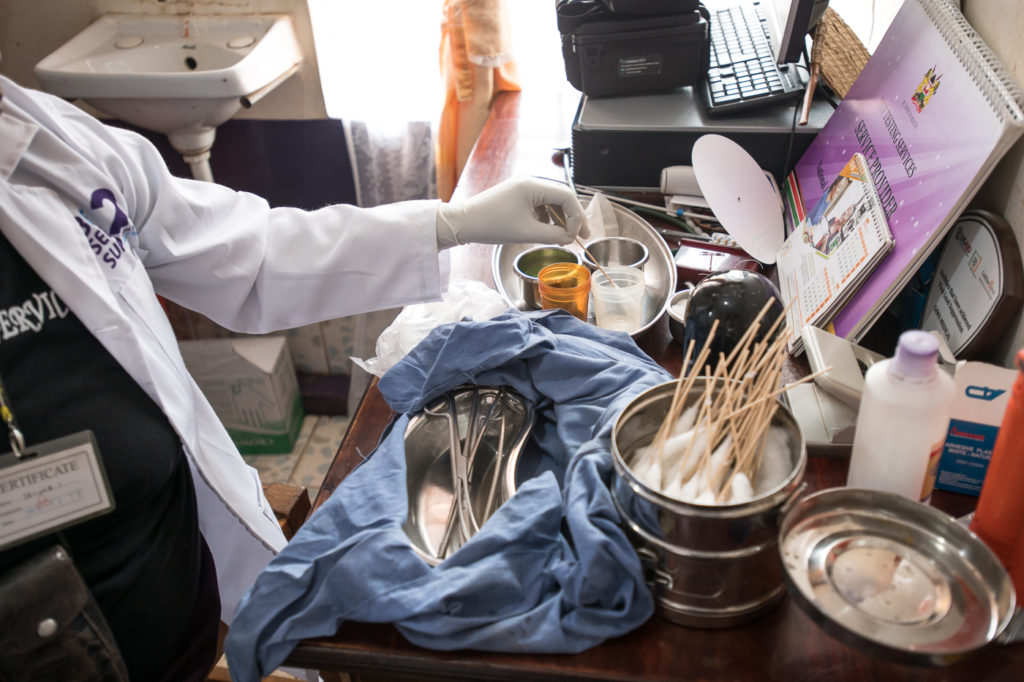
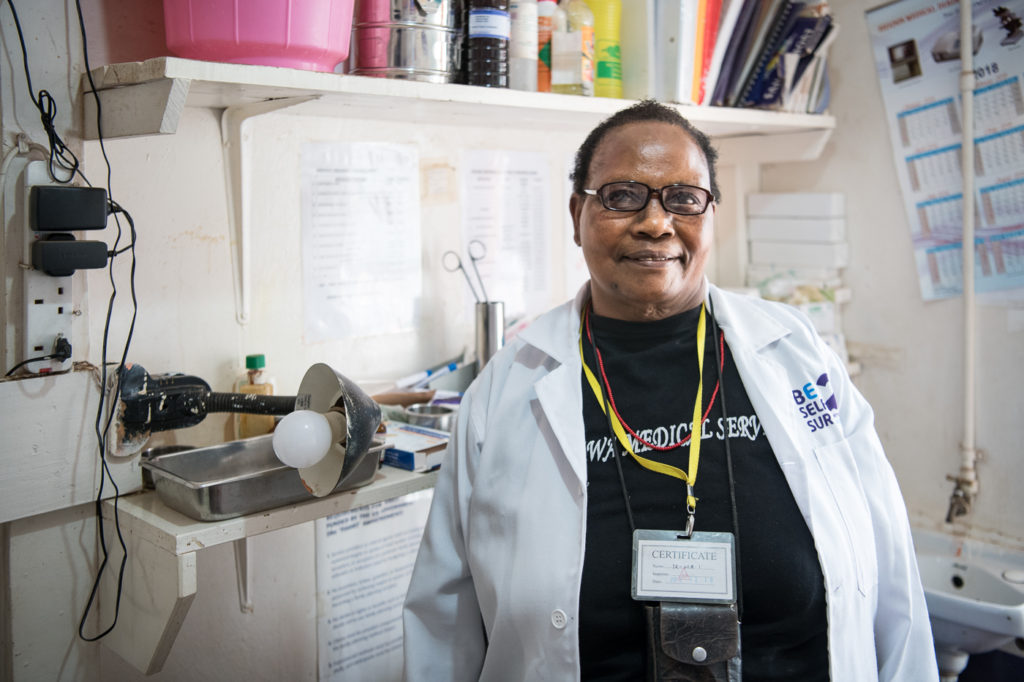
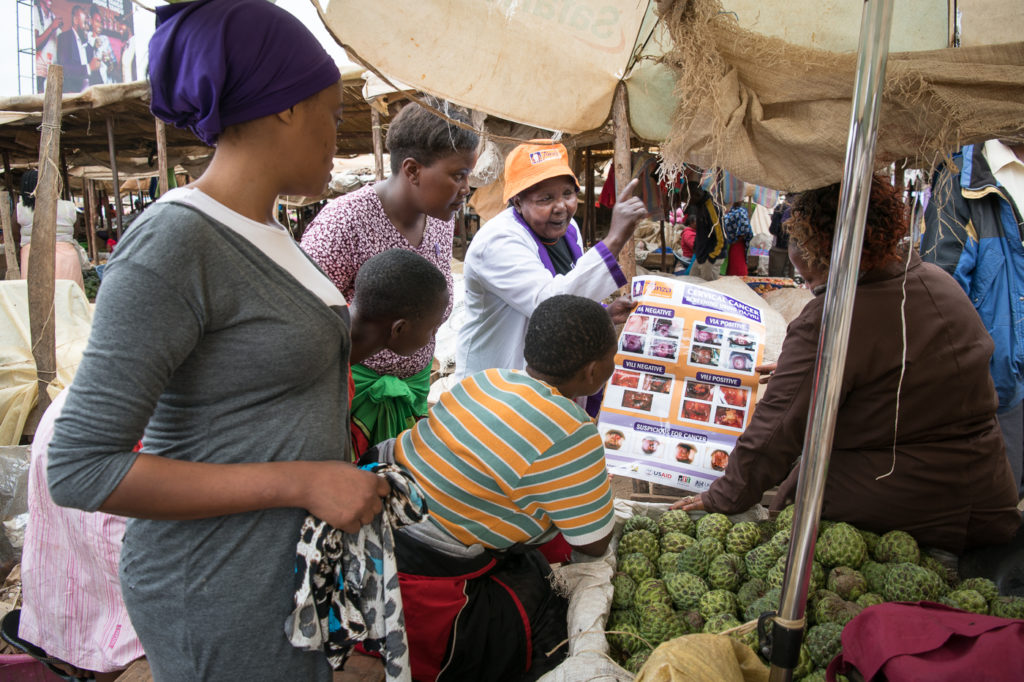
Screen-and-treat programs have been proven to prevent cervical cancer deaths around the world. Supporting these programs requires adequate resources for training, supplying, and equipping health care providers; mobilizing and educating communities; organizing services to meet women’s schedules and needs; and operating strong systems to track clients for follow-up.
“With increased funding for screen-and-treat programs, we can prevent needless deaths from cervical cancer,” said Kathy Vizas, who co-founded TogetHER with Schocken. “It is the mission of TogetHER to support these efforts globally.”
“I know the work we are doing here is making a positive outcome,” Hannah said about the screen-and-treat offerings at Gawa Medical Center. “When [women] come here and we check them and find they are sick, we can treat them. They tell the others to come to be checked, and if they are sick, they too are treated… When they find that they are well, they continue passing the message to other people to come to Gawa, so we are happy with the work.”

